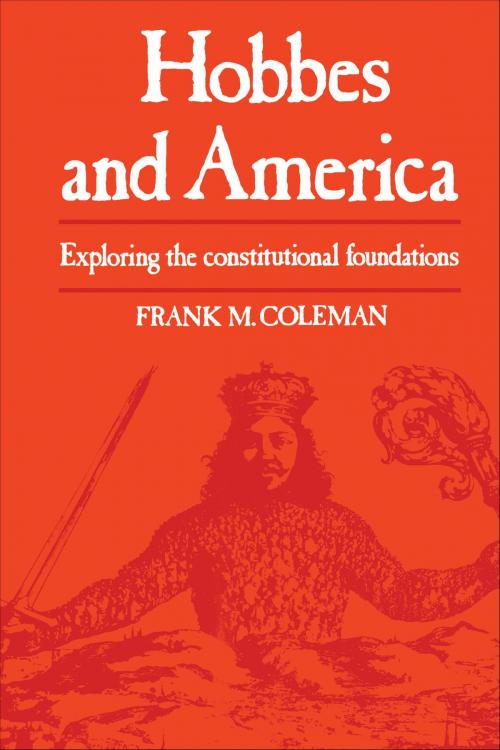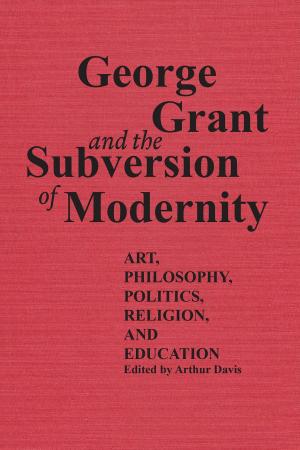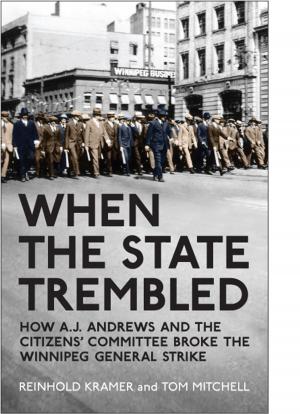Hobbes and America
Exploring the Constitutional Foundations
Nonfiction, History, Modern, 17th Century, Religion & Spirituality, Philosophy, Political, Social & Cultural Studies, Political Science, Politics, History & Theory| Author: | Frank Coleman | ISBN: | 9781442654891 |
| Publisher: | University of Toronto Press, Scholarly Publishing Division | Publication: | December 15, 1977 |
| Imprint: | Language: | English |
| Author: | Frank Coleman |
| ISBN: | 9781442654891 |
| Publisher: | University of Toronto Press, Scholarly Publishing Division |
| Publication: | December 15, 1977 |
| Imprint: | |
| Language: | English |
This path-breaking study seriously shakes the credibility of the prevalent interpretations of American government and politics. It exposes the real American constitutional morality, one embodied in a code adhered to by those in political life.
Frank Coleman makes a persuasive case that the real roots of the American political system are in Hobbes, and not, as is usually thought, in Locke. He shows that a Hobbesian interpretation fits the transactional, bargaining, or conflict-management nature of American politics pointed out by all the empirical political scientists, although this viewpoint is incompatible with the leading philosophical interpretations of American constitutionalism.
In so far as the American system and its rationale are Hobbesian, they are thereby incapable of resolving social conflicts and of pursuing any common good. The leading theories, particularly the reformist theories, are unable to absorb the teachings of empirical political science – and to such an extent that one can speak of a pattern of political schizophrenia prevailing in the political science profession.
Coleman is no naive iconoclast: he has a thorough grasp and appreciation of the traditions of political theory from Aristotle to Oakeshott: he dissects his material meticulously, with coherence and integrity. His synthesis of empirical and philosophical studies of political life sharpens our perceptions and forces a re-evaluation of certain ideas and well-entrenched notions. Hobbes and America has serious implications for understanding both American politics and, more generally, western political experience and thought.
This path-breaking study seriously shakes the credibility of the prevalent interpretations of American government and politics. It exposes the real American constitutional morality, one embodied in a code adhered to by those in political life.
Frank Coleman makes a persuasive case that the real roots of the American political system are in Hobbes, and not, as is usually thought, in Locke. He shows that a Hobbesian interpretation fits the transactional, bargaining, or conflict-management nature of American politics pointed out by all the empirical political scientists, although this viewpoint is incompatible with the leading philosophical interpretations of American constitutionalism.
In so far as the American system and its rationale are Hobbesian, they are thereby incapable of resolving social conflicts and of pursuing any common good. The leading theories, particularly the reformist theories, are unable to absorb the teachings of empirical political science – and to such an extent that one can speak of a pattern of political schizophrenia prevailing in the political science profession.
Coleman is no naive iconoclast: he has a thorough grasp and appreciation of the traditions of political theory from Aristotle to Oakeshott: he dissects his material meticulously, with coherence and integrity. His synthesis of empirical and philosophical studies of political life sharpens our perceptions and forces a re-evaluation of certain ideas and well-entrenched notions. Hobbes and America has serious implications for understanding both American politics and, more generally, western political experience and thought.















